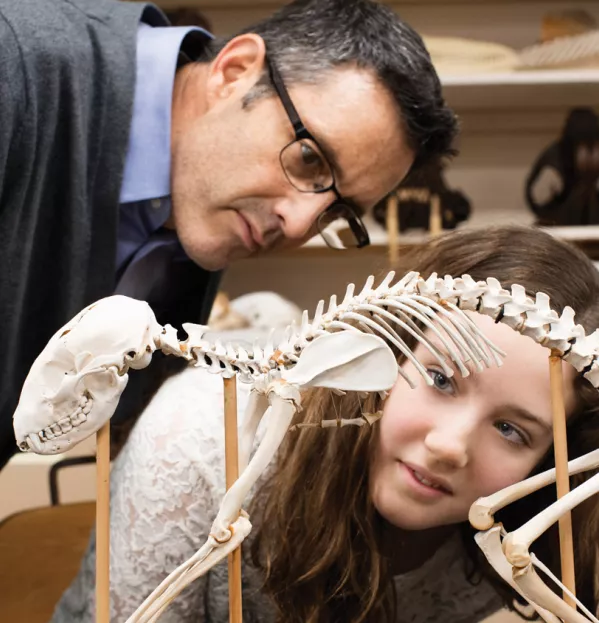Subjects must be at the heart of inspection

Two decades ago, subject teachers would eagerly await the chief inspector’s annual report to find out how their area of expertise was doing compared with that of colleagues.
Within this, each school discipline was covered in a “subject report”, which would provide a national snapshot of teaching and outline the strengths and weaknesses observed during hundreds of Ofsted inspections.
Not only did these reports provide invaluable information but they also emphasised the importance that the school watchdog placed on excellent subject teaching.
Fast-forward to 2016 and Ofsted no longer covers subjects in its annual report. It has now also quietly dropped its practice of carrying out national curriculum subject surveys, which would periodically give schools, teachers and parents some idea of how specific classroom subjects were faring. According to the Ofsted website, the last subject survey report - about science education in schools - was published in 2013.
Devotion to disciplines
At North London Collegiate School, our success is built on excellent subject teaching. Our teachers love teaching and their specialism, and we work hard to ensure they remain inspired. Their interest in and devotion to their disciplines is infectious. Our girls are inspired by their teachers’ enthusiasm.
Subject teaching should be the beating heart in every school. If the message transmitted to staff is that their specialist area is not important, not deserving of overview or comment, not part of the national debate, how much harder must it be to keep motivated and enthused in the classroom?
If we want outstanding schools, we sideline subject teaching at our peril
But this is not about making teachers feel loved - it is more important than that. Recent research has helped to inform and reinforce our ideas about good education. How the World’s Best-Performing School Systems Come out on Top, an investigation carried out by management consultant McKinseys, concludes with a simple message, applicable in all contexts and conditions: “the quality of an education system cannot exceed the quality of its teachers”.
So, however talented and charismatic the head, however well-funded and supported the school, its success will ultimately depend on how good the teaching is and nothing else.
As for the pupils, a recent survey asked 8,000 secondary schoolchildren what key qualities teachers needed to have. Nine out of 10 named “passion for their subject and enjoyment of teaching”.
Inspirational approach
To reinforce the point, the current teachers’ standards state as the first requirement that they should inspire - a word notably absent from the 2007 core standards. They add that teachers should not only demonstrate good subject and curriculum knowledge, but also keep that knowledge up to date and “promote the value of scholarship”.
The most effective teaching, whatever its other attributes, is rooted in academic rigour, subject knowledge and a passion for communicating it.
No one is denying the importance of the core subjects that the government so heavily emphasises and that have become the main focus of Ofsted inspections. But the arts and creativity in teaching and learning must be equally valued. If we want inspirational teachers, a rich curriculum and outstanding schools, we sideline subject teaching at our peril.
Subject inspection should be put front and centre of Ofsted’s work. This would mean the watchdog fulfilled a function in the system that is lacking at the moment - authoritative analysis, critical yet constructive, providing a counterbalance to the measures derived from attainment. It would also help schools to find the self-confidence to put a focus on inspiring teachers who are keen to broaden what they teach and put rich subject provision first.
One solution may be for teachers to be seconded and trained to inspect. Such an approach would be cost-effective, as well as providing a fantastic development opportunity for teachers and enhance their own teaching in the classroom. Our staff at North London Collegiate gain a great deal from travelling to our sister school in Jeju, South Korea, to inspect how subjects are taught.
The downgrading of subjects in the English system has occurred over time and under the watch of successive governments and a series of chief inspectors. As a new Ofsted head prepares to take the helm, it is imperative that we make the case for subjects to take centre stage once more.
Bernice McCabe is headteacher of North London Collegiate School and co-director of the Prince’s Teaching Institute
You need a Tes subscription to read this article
Subscribe now to read this article and get other subscriber-only content:
- Unlimited access to all Tes magazine content
- Exclusive subscriber-only stories
- Award-winning email newsletters
Already a subscriber? Log in
You need a subscription to read this article
Subscribe now to read this article and get other subscriber-only content, including:
- Unlimited access to all Tes magazine content
- Exclusive subscriber-only stories
- Award-winning email newsletters